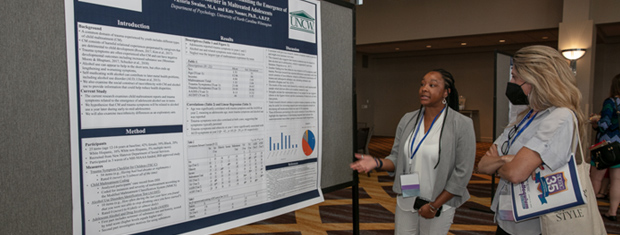




The APSAC Advisor is a peer reviewed quarterly news journal for professionals in the field of child abuse and neglect.
The APSAC Advisor provides succinct, data-based, practice-oriented articles that keep interdisciplinary professionals
informed of the latest developments in policy and practice the field of child maltreatment. It is designed to highlight
best practices in the field and publish original articles and current information about child maltreatment for professionals
from a variety of backgrounds including medicine, law, law enforcement, social work, child protective services, psychology,
public health and prevention in the U.S.
 If you wish to learn more about submitting an article to the Advisor, please click here.
If you wish to learn more about submitting an article to the Advisor, please click here.
This library contains Advisor issues dating back to the first issue in 1988. The most recent issue appears at the top.
Scroll down to select past issues by year and issue number. Once a publication appears in the box, you
can use the Enlarge button to open the document in a new window or tab (depending on how your browser is set up).
This will allow you to view the document with larger print.
To print a document, first use the Enlarge button to open the document in a new window or tab. Then use your browser's Print command.
To return here from a new tab, close the tab. To return from a new window, click your browser's Back button.
In the listing below, click on a year and issue number to see the articles in that publication.
2013 Number 1 and 2
Trends in Children’s Hospital-Based Child Abuse Medical Services: 2012 Survey Findings
Trends in Children’s Hospital-Based Child Abuse Medical Services: 2012 Survey Findings
The National Children's Alliance: Empowering Local Communities to Serve Victims of Child Abuse
The author reviews the history and mission of the National Children’s Alliance and the development of standards for children’s advocacy center accreditation. Children’s Advocacy Centers, or CACs, are increasingly providing medical services for maltreated children in the United States. The specific standards for providers of medical, mental health, and forensic interview services all stress two criteria: (1) the need for specialized training within the area of service and (2) the need for professionals providing these services to stay current in the field and participate in continuous quality improvement activities such as expert peer review. The standards stress that the medical evaluation of children in CACs should focus on their overall well-being instead of limiting the evaluation to the collection of potential evidence.
Peer Review and Telehealth in Child Abuse Medical Evaluations
The author reviews the role of peer review in quality assurance activities for medical services and the application of distance consultation using technology and expert case review. Standardization of peer review and quality improvement in child abuse continues to evolve as technology improves. Reducing variability and using common terminology in the interpretation of anatomic findings, both normal and abnormal, are critical to reduce excessive variations and deviations from the standard of medical care. The author concludes that child maltreatment programs providing medical services should develop a process of peer review that is designed to improve quality, consistency, and accuracy and that this process requires high-quality photodocumentation.
Onsite Medical Consultation for New YorkCity Child Protective Services Workers
The authors review programs integrating medical services into Child Protective Services (CPS) and describe the development of the Bellevue Hospital Medical Clinical Consultation Program funded by the New York City Children’s Services. This program brings nurse practitioners into CPS offices to act as consultants for CPS caseworkers to provide case consultation, training, and other assistance for investigation and service planning. The medical consultants do not provide direct clinical service to children or families but are based in CPS offices to assist CPS workers in identifying and responding to medical issues in their cases. Data from the first five years of the program, as well as evaluation and research results and potential barriers to replication, are discussed.
The purpose of Journal Highlights is to alert readers to current literature on child abuse. Selected articles from journals representing the variety of disciplines reflected in APSAC's membership are presented in the form of an annotated bibliography.
APSAC Advisor 25(1-2): Full Issue